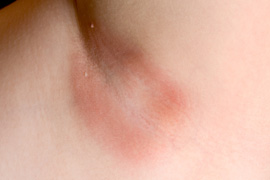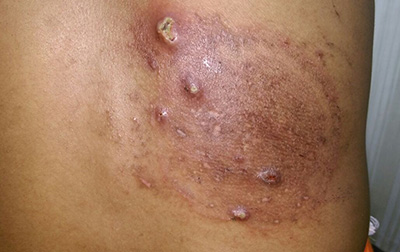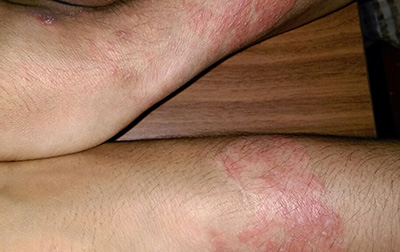
Dr. Abha Bhatnagar specializes in Dermatology (Skin disorders).
She did her MBBS from SMS Medical College, Jaipur and MD from Postgraduate Institute of Medical Education and Research, (PGIMER), Chandigarh.
Later she worked as a Senior Registrar in Government Medical College and Hospital, Sector 32, Chandigarh.
Throughout her academic career she has won several national and international awards including the prestigious Poster exhibit award by American Academy of Dermatology, USA, scholarship by International Society of Dermatology to addend International Congress of Dermatology, Prague, Czech Republic and travel scholarship by Women's Dermatology Society, USA.
She has authored several research papers in international journals. She is also reviewer for several international peer reviewed indexed journals including Clinical and Experimental Dermatology, UK and Journal of the European Academy of Dermatology and Venereology.
Dr. Abha Bhatnagar is the Vice President of Chandigarh Dermatology Society.
She is an active member of the Indian Association of Dermatologists, Venereologists and Leprologists (IADVL) and Association of Cutaneous Surgeons of India (ACSI).
She has also volunteered with State AIDS Control Society, UT and Leprosy elimination campaigns of UT.
Her area of special interest is Aesthetic and Cosmetic Dermatology, Pigmentary Disorders, Paediatric Dermatology and Skin Care Counselling.
Fungi are single or multi-cellular organisms that cause skin infections. Fungi can be true pathogens, which cause infections in healthy people, or opportunistic pathogens, which cause infections in immune-compromised patients. A common type of fungus is yeast, which is already present in the human body, but when levels increase, can result in infection. Dematophytes are fungal organisms that grow on the human body and infect the top layer of skin as well as nails or hair. There are different types of fungal infections, and each can appear in different areas of the body. Some symptoms include: rash, itchy blisters, cracking of the skin, and skin irritation.



Fungal infections can be caused by a variety of conditions and medication-use. Some risk factors for developing a fungal infection include:
Treatment for fungal infections is generally antifungal creams, which can be bought over the counter, such as 1% clotrimzoel and 1% terbinafine. They are usually applied to the affect areas several times daily, and can take many weeks before all signs of the fungus vanish. If these creams fail, prescription antifungal creams such as econazole 1% may be recommended. For extreme cases, or when toenails are involved, oral terbinafine may be useful.
There are some measures you can take to prevent the skin of contracting a fungal skin infection. You should always keep clothes dry and clean, and wear loose-fitting clothes as much as possible. Avoid sharing hairbrushes, combs, and towels, as they may contain skin fragments with fungal colonies. Use alternative shoes every few days to avid athlete's foot. Natural fabrics that allow the skin to "breathe," such as cotton, should be worn as well.
of [Zirakpur]
The Skin Solutions
SCO 15,FF, Amcare Plaza,VIP road,
Zirakpur, Mohali, Punjab 140603
Monday to Saturday
09:30 AM - 02:00 PM
4:00 PM - 6:00 PM